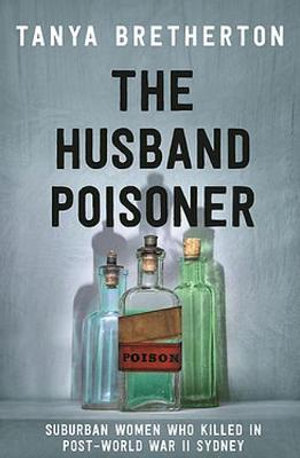The husband poisoner by Tanya Bretherton

Post World War II Sydney had a sinister issue - women using household poison thallium (rat poison) to kill inconvenient family members. Yvonne Fletcher poisoned two husbands while Caroline Grills poisoned her stepmother, family friend and her brother and his wife. These victims often were completely unaware, due to thallium being colourless, odourless and tasteless. Their symptoms were written off as being in the victim's head, or old age, or simply unknowable. The Husband Poisoner is the story of these women who took matters into their own hands, to rid themselves of abusive partners or family members they considered a burden - or that had caused them grief over the years.
This non-fiction book is full of facts and historical occurrences, but as it is written in almost a story like manner, readers will be quickly immersed into the lives of these husband poisoners in Post World War II Sydney. Following their daily lives and their every move, the author has managed to create the world these women lived in so completely, that readers will picture everything, possibly forgetting that these are real stories, real people. The pain the victims suffered is described in as much detail as those who provided statements could assume or had witnessed. The medical profession, unaware of the reasoning behind these symptoms, was inadequate to assist most of the victims, with their pain and suffering usually being drawn out. Readers will question what was going through the husband poisoners' minds as they continued to add thallium to tea, food, even lollies, and watched their family members slowly deteriorate. The book follows the police and the detectives responsible for investigating the deaths, and the dangerous threat that thallium posed to the public. As a fun addition throughout the book, at the end of many chapters, recipes that were popular at the time are included.
Themes: Non-Fiction, True Crime, Australian History, Post WWII Sydney, Poisoning, Thallium, Medical History.
Melanie Pages